Color recognition Writing Worksheets for Ages 3-7
12 filtered results
-
From - To
Welcome to our Color Recognition Writing Worksheets, designed for children aged 3-7! These engaging worksheets help young learners identify and recognize colors while enhancing their writing skills. Each activity combines fun illustrations and interactive exercises to make learning enjoyable. Your child will practice color naming, coloring, and writing through activities that nurture creativity and motor skills. Perfect for home or classroom use, our worksheets support early literacy development and encourage exploration through color. Get your child started on their colorful learning journey today – worksheets are easy to print and ready to spark imagination and enhance essential skills!
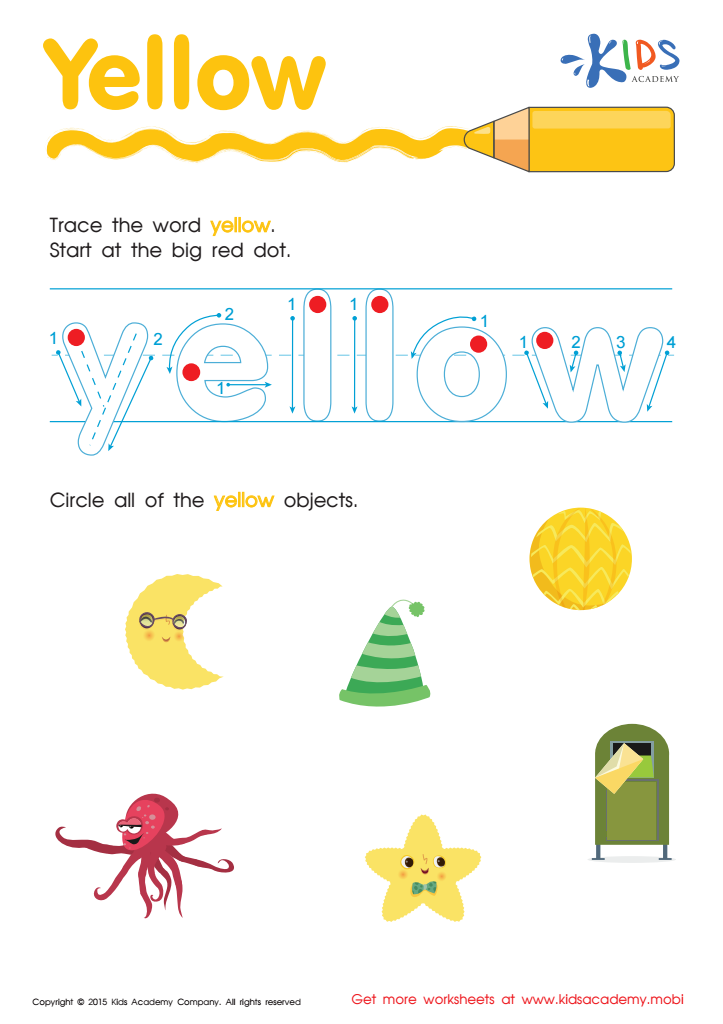

Yellow Tracing Color Words Worksheet
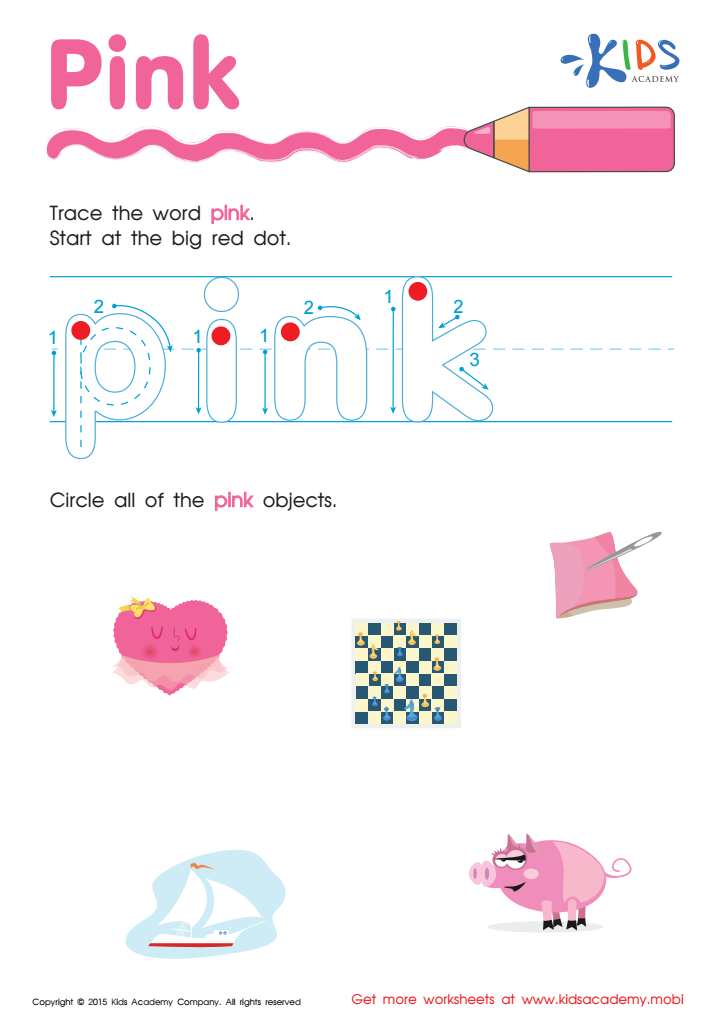

Pink Tracing Color Words Worksheet
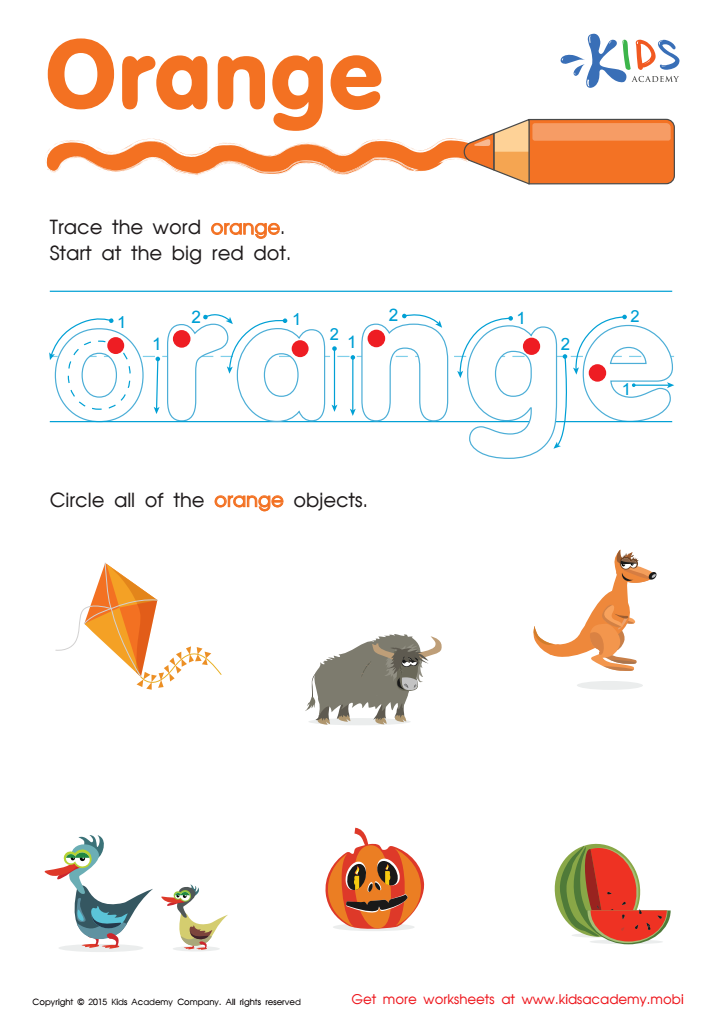

Orange Tracing Color Words Worksheet
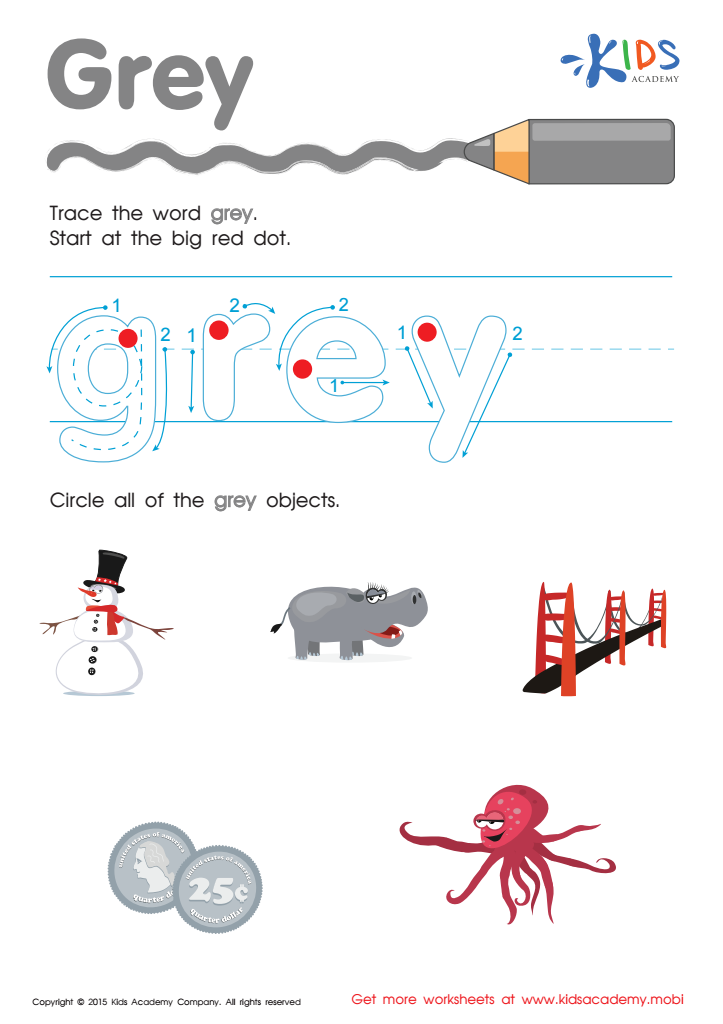

Grey Tracing Color Words Worksheet
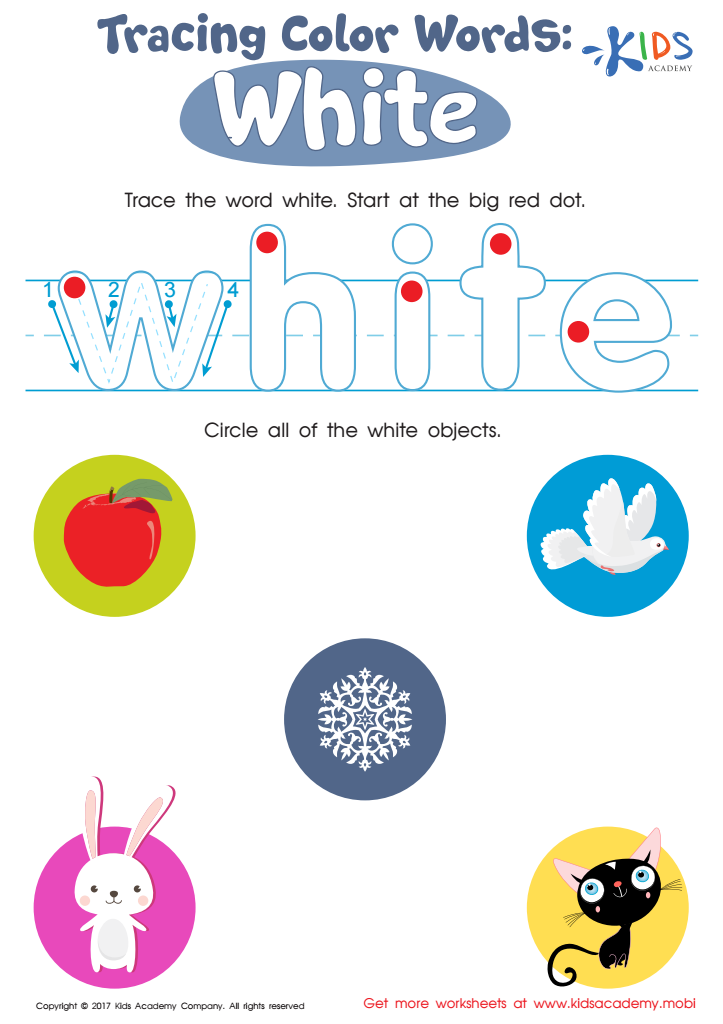

White Tracing Color Words Worksheet
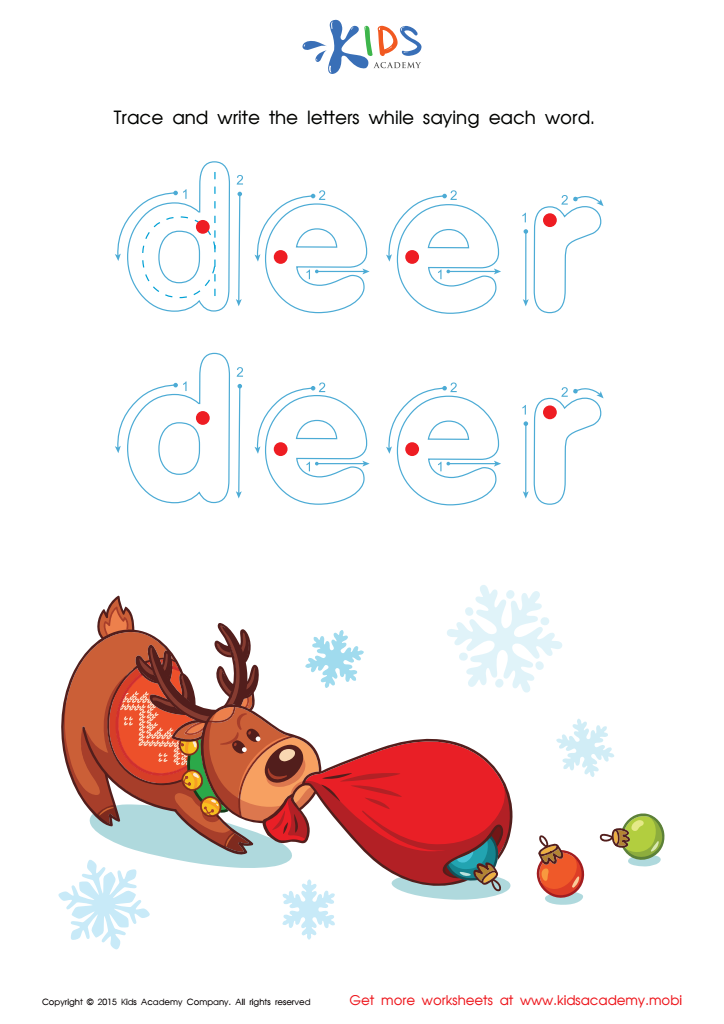

Deer Tracing Winter Words Worksheet
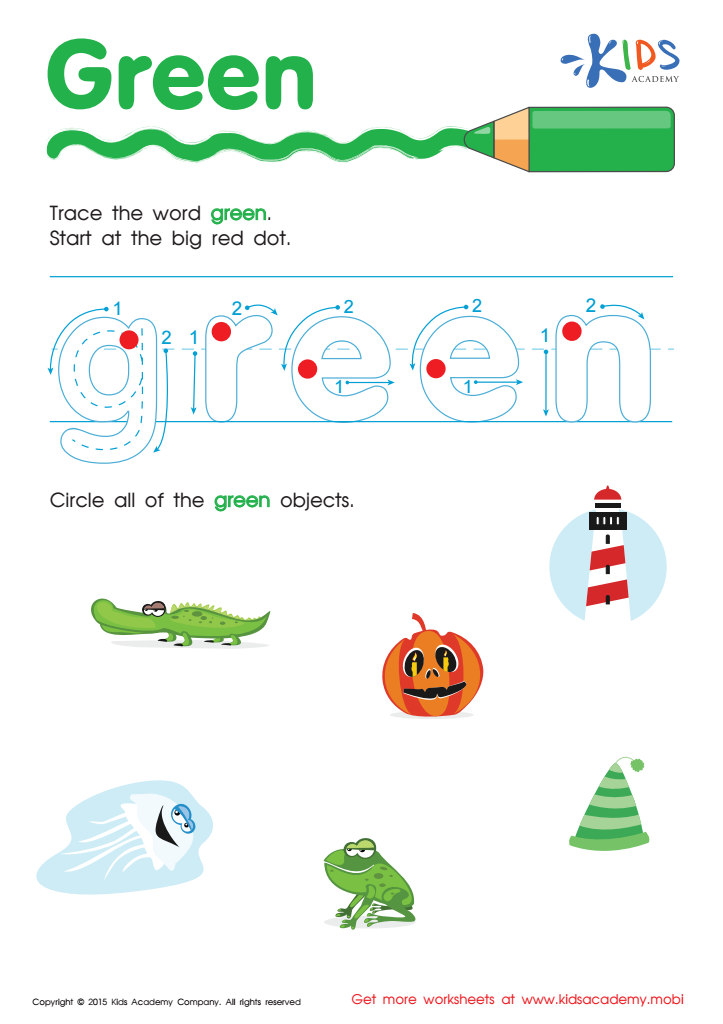

Green Tracing Color Words Worksheet
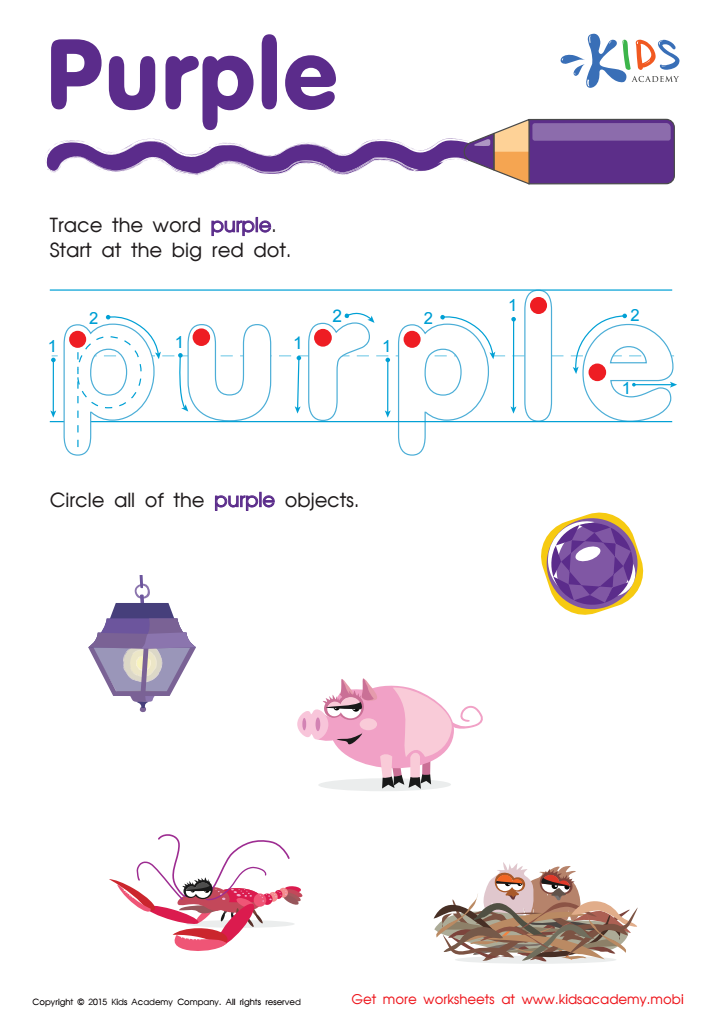

Purple Tracing Color Words Worksheet


Santa Claus Tracing Winter Words Worksheet
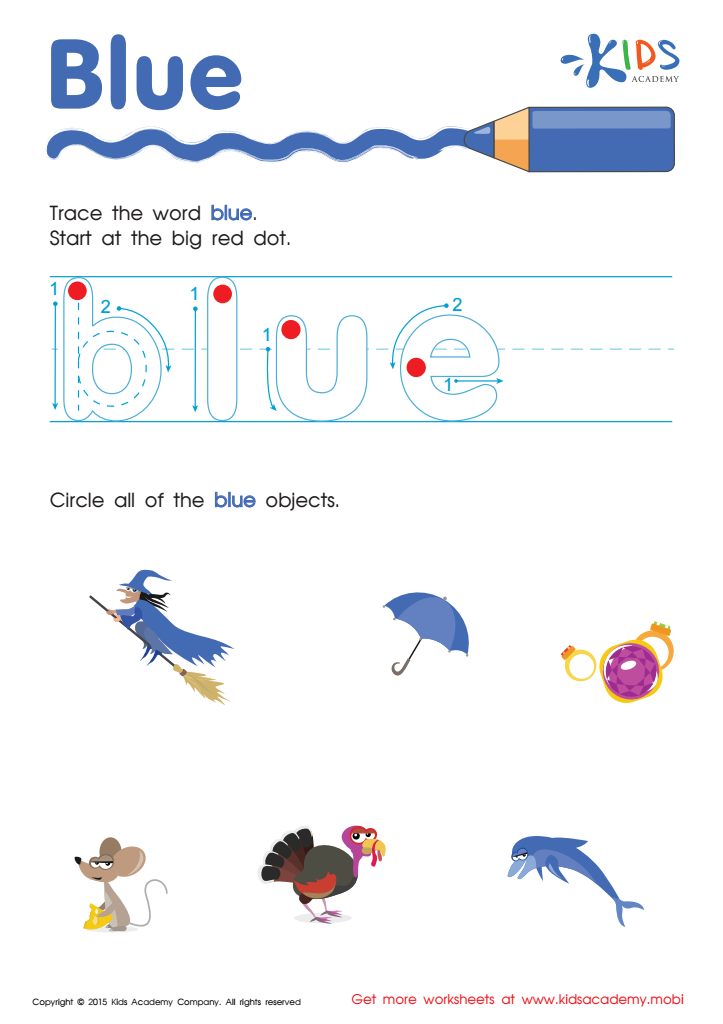

Blue Tracing Color Words Printable
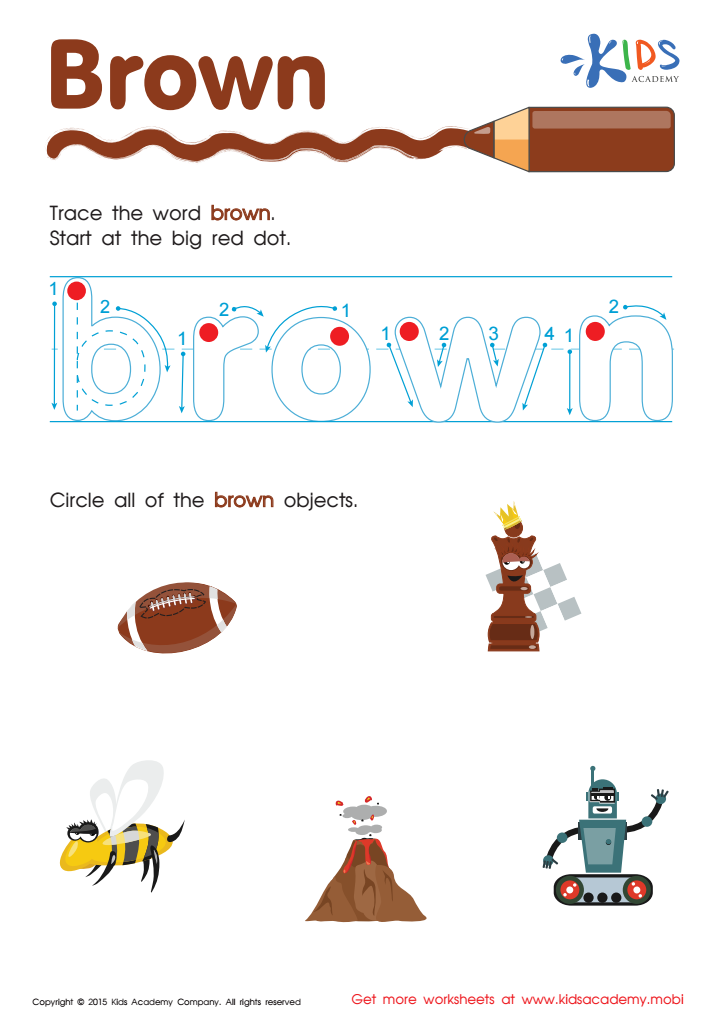

Brown Tracing Color Words Worksheet
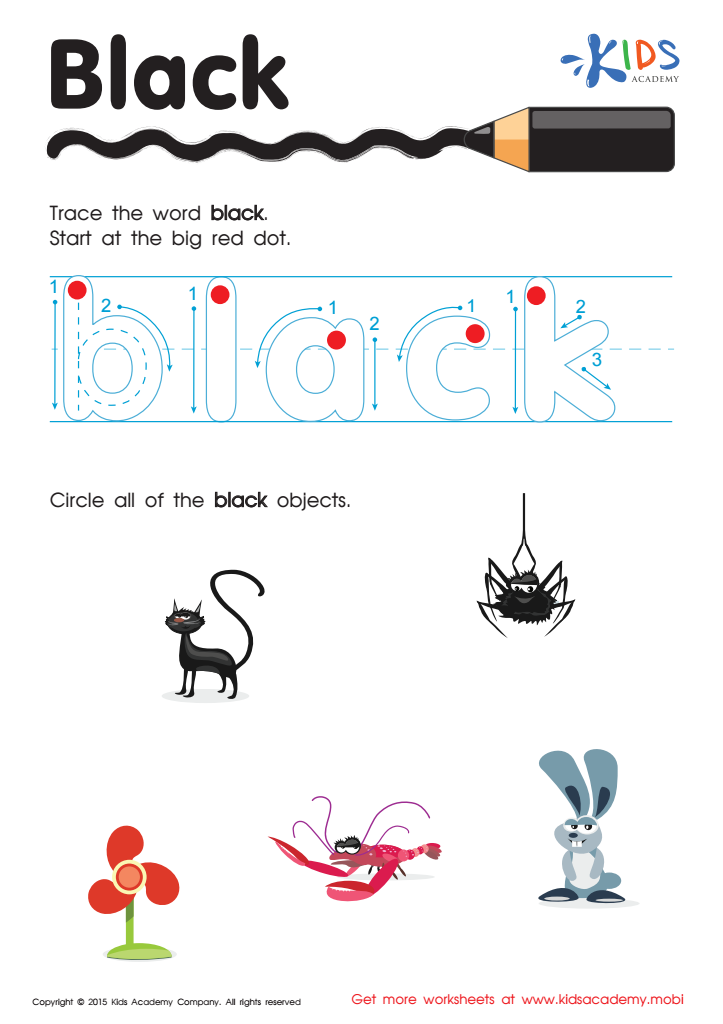

Black Tracing Color Words Printable
Color recognition is a fundamental skill that plays a crucial role in the development of children aged 3-7. For parents and teachers, understanding its importance can significantly enhance a child's learning experience. Early identification of colors helps children make sense of the world around them, facilitating cognitive development and enabling them to categorize and distinguish objects more effectively.
Color recognition also supports language skills, as children learn to articulate colors while expanding their vocabulary. This creative expression can boost their confidence during social interactions and class activities. Furthermore, colors are often intertwined with concepts in mathematics, art, and science, making them essential for holistic educational growth.
Encouraging color recognition through engaging activities can set the foundation for essential skills like critical thinking and problem-solving. Additionally, incorporating colors in storytelling, games, and crafts makes learning fun, keeping children engaged and more likely to remember what they've learned.
Ultimately, when parents and teachers prioritize color recognition, they foster a supportive learning environment that nurtures curiosity and enthusiasm in young learners, preparing them for more complex concepts as they progress academically. Their involvement in these early stages lays the groundwork for lifelong learning, promoting confidence, creativity, and critical thinking skills.
 Assign to My Students
Assign to My Students





















